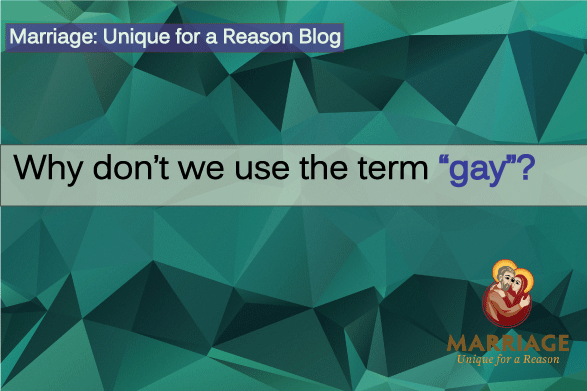 Today we finish our series in which we have eavesdropped on Socrates and a person of good will (Bob) discussing the question “What is Marriage”. Let us know if it was helpful!
Today we finish our series in which we have eavesdropped on Socrates and a person of good will (Bob) discussing the question “What is Marriage”. Let us know if it was helpful!
Socrates: Well Bob, I think you wanted to talk more about the distinction I made between use and respect.
Bob: Yes, I did. You made it sound as if people in a same-sex relationship don’t respect one another, and I totally disagree with that.
Socrates: I’m sorry if that’s what it sounded like. I didn’t mean that they disrespect one another in any sort of conscious way. What I meant is that, objectively speaking, what they are doing with their bodies sexually does not respect the way that their bodies are made or the full meaning of sex.
Bob: Why?
Socrates: Because the sexual expression of human beings is meant to unite the two ways of being human with one another, with the possibility of creating new life—all of course within marriage. A man’s body, in its sexual capacity, only makes sense when paired with a woman’s, and vice versa.
Bob: But don’t many men and women use and disrespect each other? I see people in same-sex relationships that seem to care for one another more than some opposite-sex relationships I know.
Socrates: That’s true. Unfortunately, many men and women disrespect each other, for example by having sex outside of marriage or by using each other in marriage. But we’re talking about the meaning of the human body and sex. This meaning can be respected or disrespected whether one is same-sex attracted or opposite-sex attracted.
Bob: Okay, fine. But people of the same sex can still be the best of friends even if they don’t express it sexually. Also, I know someone who is gay and lives with his partner, and their relationship teaches me a lot about love and acceptance of one another.
Socrates: Have you noticed that I don’t use the term “gay” to describe anyone?
Bob: I had noticed that, yeah, mostly because it makes this dialogue quite wordy. You keep saying “persons attracted to the same sex” or “persons with same-sex attraction.” Why?
Socrates: Well, should a person be defined by their sexual attraction? They are a man or a woman; that means they are objectively made in such a way that they can unite totally with a person of the opposite sex. That’s a fundamental fact; if they experience sexual attraction for someone of the same sex, acting on that isn’t ever going to lead to full union. Calling someone “gay” or a “lesbian” means that you are defining them by an attraction that is at cross-purposes with their identity as a man or a woman.
Bob: But if that’s how they define themselves, it’s silly, even disrespectful, of me not to.
Socrates: I disagree. I think that by refusing to define someone by their sexual attractions, you can remind them that they have lots of other qualities and that you don’t put them into one label.
Bob: Okay I can see what you mean. I’m going to have to think about this more because I haven’t thought that it’s that big of a deal. I get what you’re saying that sexual attraction is only part of the person, but at the same time, adults tend to structure their lives around sexual relationships.
Socrates:You’re right. But if you think that someone’s sexual relationship may be harmful to them, you don’t want to define them by it, right?
Bob: Right. But if they’re my friend, they’re my friend. Period. I will be there for them, no matter what, and they can tell me anything. They don’t have to hide with me.
Socrates: Okay. What if they want your approval of a sexual relationship that they’re in? What if they want society to approve of their relationship as a marriage?
Bob: I would just tell them that I love and care about them… but I’m not sure about the marriage thing.
Socrates: Why not?
Bob: I don’t know. I have to think about it.
Socrates: Okay. That’s an important question. Thanks for thinking about it, Bob. Look forward to our next opportunity to chat. Well I guess the only thing I’d want to say to you as we end is that I think people with same-sex attraction have a pretty important role to play these days.
Bob: Thanks, Socrates.
FAQ: Why does the Catholic Church care so much about marriage?
Leave a Reply